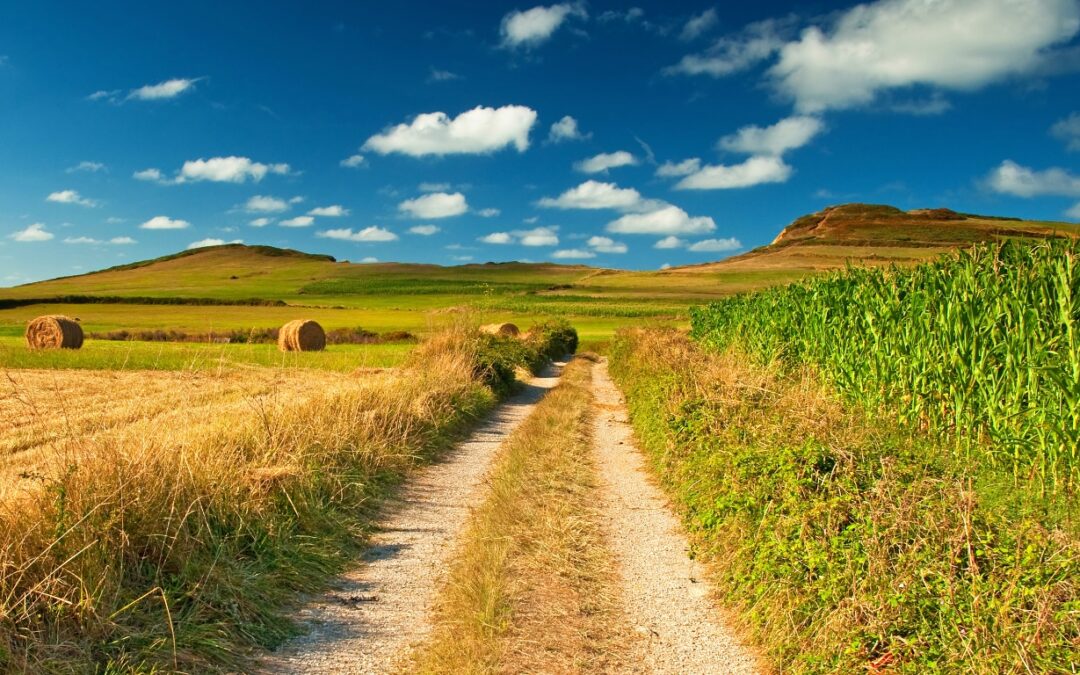The best of both worlds: Parallel Production
Ryan Albinger initially transitioned his entire operation to organic. However, as his farm grew, his needs changed, and he decided to farm newly acquired parcels of land using conventional methods. Parallel organic and conventional production methods, Albinger argues, offer economic and social benefits.
“There are PR advantages,” Albinger said. Although he still reaps the benefits of organic production, he found that having a parallel operation allowed him to more easily connect with neighbors who farm conventionally. “[They know] I am not just a fringe practitioner with weeds in my field…growing weird crops.”
What’s the difference between Conventional and Organic agriculture?
Conventional and organic farmers have the same goal: to produce healthy food. But there are significant differences in how conventional and organic operators achieve this shared goal.
Crops grown organically are produced without the use of synthetic inputs. Instead of controlling weeds, pests, and disease with synthetic fertilizers and pesticides, organic farmers focus on natural inputs and mechanical solutions. These practices include:
-
- Crop rotation
- Cover crops
- Tillage
- Flame weeding
- Green mulch
- and more!
Beyond producing healthy food, organic operators hope to improve the health of the land and increase biodiversity within the soil in order to operate sustainably.
In contrast, conventional farmers use synthetic materials to control pests, weeds, and disease. Many conventional farmers also use genetically modified seeds, a practice that is not allowed under organic regulations. Scientists created GMO seeds to combat specific problems faced during the growing season. Depending on modifications, GMO seeds may:
-
- resist common diseases
- repel common pests
- grow faster
- result in heartier crops
Parallel Production: Farming Conventional and Organic Acres
While many operators choose to fully transition their operations to organic, others, like Albinger, farm both conventionally and organically. This is called parallel production.
Parallel production allows operators to take full advantage of the benefits of both organic and conventional agricultural practices. But the method presents challenges.
“One of the challenges is the higher amount of paperwork and documenting the separation of the two systems,” Albinger said.
It can be helpful to establish organic acreage far from conventional acreage.
“Having the parallel production literally miles apart in my case is helpful,” Albinger said. “But the paperwork to prove that is significant, and rightly so.”
The large amount of paperwork might be intimidating to a conventional operator who simply wants to dabble in organics. Another challenge that parallel operators face? The ease of conventional farming.
“A phone call and writing a couple checks can make a county average yield,” Albinger said of conventional farming, noting that the use of GMO seeds and synthetic inputs means that conventional farmers don’t face many of the challenges that organic farmers face.
Still, organic acres command premium prices upon harvest. For many organic and parallel farmers, this makes the challenges of organic farming palatable.
Parallel operations provide producers with another sizeable benefit. “The ability to chameleon into situations is an essential tool that more organic farmers should possess,” Albinger argued. For him, knowledge of and real-life experience with both organic and conventional practices means he can make organics more palatable for a mainstream audience. “It’s the fastest way to disrupt systems,” Albinger concluded.
Are you a farmer, rancher, or processor who has transitioned to organic with OCIA International?
This post is part of a series featuring OCIA International certified organic operators from Canada, Mexico, Nicaragua, Peru, and the United States. Are you an OCIA operator interested in being featured? E-mail us at info@ocia.org for more information.
Every operator’s path to organic is different. Read more from our “Operator Spotlight” series to learn about the different paths to organic certification.
- Jack Geiger: The farm crisis of the 1980s forced Jack Geiger’s family to consider farming methods that required fewer and less expensive inputs. They naturally turned to organics.
- Askegaard Organic Farm: For Mark and his family, transitioning their conventional family farm to an organic farm just made sense. Organic practices–focused on creating sustainable environments and providing consumers with transparency–aligned with their values.
- Allan Kettle: In the mid-1990s, Allan Kettle decided to organically certify his Alberta farm. For Allan, the decision to pursue organic certification was easy. Allan’s father, who operated the farm before him, had never used synthetic fertilizers or sprays. Allan continued those practices when he took over the farm.
Learn more about organic agriculture, certification, and OCIA International.
- Should you transition to Organic?: The decision to transition a conventional operation to organic is deeply personal. Organic certification requires resources, like time and money, and perseverance in the face of the challenges that you will inevitably encounter along the way. Is transitioning to organic the right step for your operation?
- Organic Certification Process: All operators seeking initial organic certification must complete a similar six step process regardless of which certification agency they partner with. The certification process can feel intimidating at first, but knowing what to expect can help alleviate much of the stress you might initially feel.
- Organic System Plan: Everyone seeking organic certification–whether applying for the first time or the seventeenth time–must submit an updated Organic System Plan (OSP). But what is an OSP? And more importantly, how will it help you beyond certification?
- Healthy Soil: Cultivating healthy soil requires establishing ecological balance and increasing biological diversity. But how can you establish healthy soil on your farm?
- Why Certify with OCIA?: Choosing an organic certification agency is one of the most important points in an operator’s certification process. Let us tell you why OCIA is the right choice for you.

